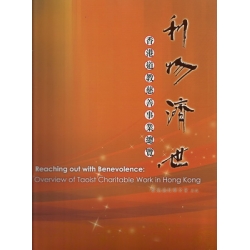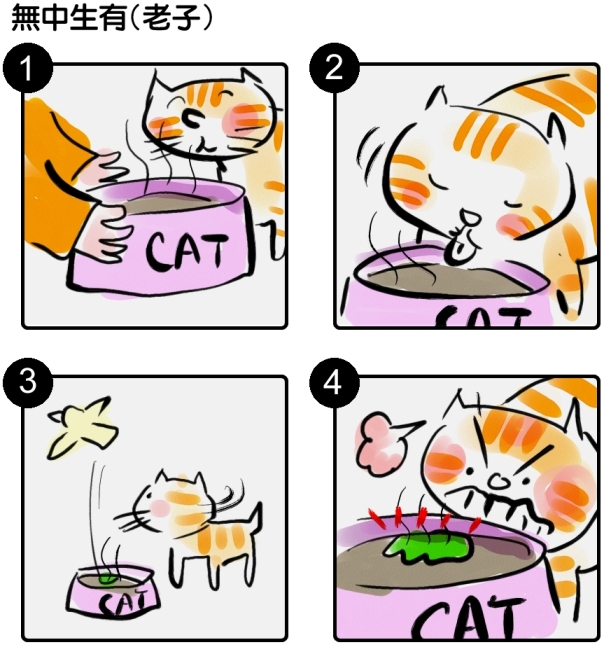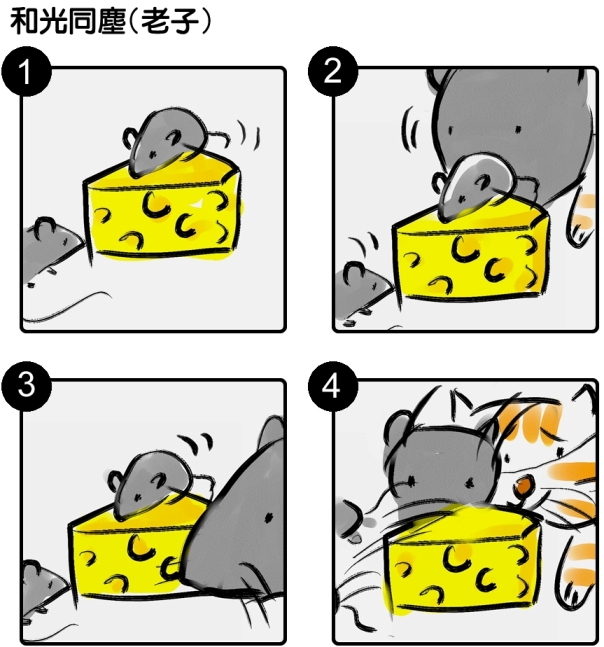利物濟世
 |
|
序
鍾逸傑 David Akers-Jones
今天的香港,是一個國際大都會。香港的成功,並不是偶然的事。這個海隅小島能夠取得今天的成就,其中主要的原因,是近百年來有不少熱心人士持續為她作出大量的貢獻。這些人當中,以來自中國內地移民居多,他們可能曾只以香港為暫住之地,最後則留港定居,建設社會。香港道教界人士,便是其中的一份子。
早在上世紀初期,中國進入歷史性的轉變,舊制廢除,新制未立,社會動盪,人心不穩,不少民眾從中國內地移居香港生活。有道教信仰的人士,以及道教行善濟世的思想,也於此同時進入香港。道教行善濟世的事業,乃在香港生根。及至二次大戰,四起狼煙,香港雖位於中國南隅,仍經歷三年零八個月之苦。在這動盪不安的時代,道教徒在香港積極進行救濟工作,如施醫贈藥,施棺贈殮、施粥賑飢、收養孤寡等,為社會保留元氣,為人間增添暖意。
在上世紀六十年代前後,香港社會發展相對較為平和。然而,從今天的角度回顧,當時港府缺乏完善的社會福利政策,當要解決一些醫療、教育、福利或應對天災人禍等問題,都很大程度依賴個人、家庭或社會慈善團體的承擔和支持。隨著香港不斷發展,這種被動的辦法,越來越不能滿足香港社會的實際需要。港府於是因應情勢,調整社會福利政策,除了直接投入資源,扮演主導角色外,另外的方法,便是積極與慈善團體互相合作,以推動社會的慈善及福利工作的發展----此方法一直沿用至今天。道教團體以行善濟世的精神,積極參與社會慈善工作,更在此政策的轉變中起了重要的作用。
早年我於港府任職,在新界地區曾先後出任荃灣、離島和元朗等地的理民官,即使後來轉任新界政務司乃至出任政務司期間,也是負責地區事務,故此對香港地區的發展,可說有相當的認識。我認識道教團體的人士,亦早從上世紀六十年代任職新界民政司開始。當時道教人士陸續在香港各區從事大量的社會慈善工作,如興學育才、贈醫贈藥、建安老院、老人中心等等。除此之外,不論昇平日子或出現天災人禍時,道教團體所舉行之打齋建醮,對安撫民心,教化社會,亦有著積極意義。
然而,道教人士無論從事任何慈善工作,少有刻意宣揚。香港社會有關慈善工作的論著中,亦鮮有提及道教的貢獻。這種情況並不利於我們對過去香港的全面認識。香港道教聯合會編製《利物濟世》一書,紀錄上世紀至今道教人士在香港所從事的慈善工作,使我們對香港過去的發展,有更充分的了解;同時也可以進一步了解香港慈善福利事業的歷史,以及道教界人士為社會所作出的首獻。
謹此推薦這部圖文並茂的《利物濟世》圖文集予各位。
It is no accident that Hong Kong became a successful international metropolis. In the past one hundred years, numerous enthusiastic individuals, most of them residents originated from mainland China, have contributed to the growth and development of this small island. Taoists in Hong Kong are among the people who have made the city their home.
Since the turn of the last century, China had entered a period of drastic historical changes:political and social instabiliD saw many mainland Chinese people immigrate to Hong Kong and these included Taoists who began sowing seeds of benevolence in the city. In the three years and eight dark months of Japanese occupation during World War II,Taoists passionately provided relief and assistance to those in need, offering free medical and funeral services,distributing food as well as taking in orphans and the desolate.
Growth of Hong Kong society levelled off around the 1960s with the city enterine a period of steady development. Government social welfare policies were inadequate by today’S standards and response to medical, education and social problems or calamities largely depended on the efforts of individuals, families or charitable organisations. As the city grew,this passive approach to social welfare could no longer meet the actual needs of society.Therefore, the Hong Kong government adjusted its welfare policies in line with social changes, directly investing resources as it took on a spearheading role.The authorities also worked closely with charitable organisations to promote charitable work and social welfare, an approach in use until today. Meanwhile, Taoists organisations have played an indispensable role in this change in policy through proactively participating in Charitable initiatives.
While I served in the Hong Kong government as District Officer of Tsuen Wan, the outlying islands and Yuen Long and later as Secretary for the New Territories, I was chiefly responsible for district affairs and have thus accumulated sound knowledge of district development in Hong Kong. During my tenure as Secretary for the New Territories in the 1960s, I made acquaintances with members of Taoist associations, who had selflessly devoted themselves to charitable work in education, medical and healthcare as well as elderly care. In addition, whether in times of peace or calamities, the jiao sacrificial rituals held by Taoist organisations have contributed immensely to pacifying the people and nurturing good in society.
Nertheless, the Taoist community has kept a low profile when performing benevolent Deeds, while literature on charitable work in Hong Kong seldom mentions Taoist contribution. To fill this gap in the history of charitable work in Hong Kong. the Hong Kong Taoist Association compiled Reaching out with Benevolence, a dedicated volume on Taoist charitable initiatives since the last century. The book will help deepen our understanding of Hong Kong's past and the contributions of Taoists to society.
Sincerely recommend this illustrated volume t0 you all.
序
湯偉奇
香港華洋雜處,西方文化精粹早已融入香港之法律、政治,乃至於港人的日常生活之中。與此同時,中國文化卻一直仍深深植根於港人的靈魂深處,使其待人接物,行事處世,無不顯示出中華民族的優良風範。道教作為中華文化之根柢,自然亦早在此濱海之地茁壯成長,即使只就在本地設立壇堂而論,亦已有一個多世紀了。百載爐峰,風雨如晦,香港道教始終與港人一道,經歷時代驚濤,天災人禍,共同創造獅子山下的傳奇,見證東方之珠的輝煌。香港各壇堂高道大德,以持續不懈的民瘼關懷,為玄意高遠的道教思想、教義及文化,作出簡單明確的入世解讀,使傳統道教成為今日與港人生活息息相關的香港道教。
近百年來,中國內地經歷了種種翻天覆地的改變。在這動盪不安的時代,不少道門宗匠,鶴駕南游,於香港啟壇設觀,弘道唱法,並施藥贈醫,行善濟世,奠定香港道教發展的穩固基礎。及後二次大戰爆發,日軍侵華,香港作為中國著名商埠,時雖云英佔,仍不能倖免於戰禍。在三年零八個月的艱難時刻,三清弟子在困境中堅持濟世,施衣贈粥,活人無數。香港重光後至六十年代,人口不斷增加,經濟逐步恢復。當時港英政府缺乏全面的社會福利政策,市民的教育及醫療等福利,主要依靠慈善團體的參與。在施醫贈藥、興辦義學、送贈棉衣棉被、急賑災民等慈善工作中,自然亦少不了道門弟子的熱情參與。七十年代,社會經濟起飛,港府在社會福利發展中承擔主動角色,道教團體積極配合,以更大的熱情,充分的投入,在醫療、教育、慈幼、安老、社區、文化、學術等各個領域,開展卓有成效的系統工程,建立了一個個完善的社會服務體系和網絡,每日為香港市民提供有關服務。
香港道教團體的興辦,多以奉行眾善為基本宗旨。回想先賢創立香港道教聯合會,其重要目的,除了要聯合道教內各門各派,排除門戶之見,在道一風同的理念下,共同奉太上道祖,宣揚大道,弘揚中國土生土長的道教,同時亦希望集合道門力量,開展服務社會的事業,創辦學校、醫院,乃至墳場等。在發展過程中,亦因應社會的變化,利益眾生。如因見香港在戰後復甦過程中,經濟日漸起飛,社會道德水平卻呈日趨下降之勢,於是先賢積極弘揚大道,舉辦前後長達二十多年“道德講座”,教化社會。此外,先賢定期舉辦“下元解厄萬緣勝會”,除了為民祈福外,亦是希望借以教化社會,讓年青一輩明白敬天法祖、慎終追遠等中國傳統美德。
即使在慈善事業百年耕耘,艱苦備嘗,又或是今日碩果滿園,稱譽載道,香港道堂卻一直以太上道祖聖訓為準則,“聖人處無為之事,行不言之教....功成而弗居。”另一方面,由於不少道堂所建立的服務體系和網絡,綿密無間,深入人心,市民對此稱便卻“日用而不知”,背後飽含的是三清弟子長期辛勤和默默奉獻。其實無為之事仍為事,不言之教還須教,香港道教在這方面大量如歌般的事跡,若隨時間而湮沒於歷史的洪流中,完全不利於激勵後進,亦無助於道門的薪火相傳。過去十年間,香港道教界同寅除了積極宣揚大道,也做了大量資料整理的工作,有回顧上世紀香港道堂發展的《道風百年》,有回顧香港科儀經懺的《香港道堂科儀歷史與傳承》等等,道門中人多年來行善積德、濟弱扶傾的善行,卻並未有一本專著回顧,誠為道門一大憾事。
近年,香港道教聯合會以“宣、頌、齋、善”作為辦道方針:
“宣”即宣揚道教文化,道教有“慈、儉、禮”三寶,可作為個人修身的重要指南,對社會有教化的作用。
“頌”即是誦經禮懺,透過誦經,可以洗滌人心。透過經文的教化內容,可對人的行為有警惕的作用,亦是社會教化的一種。
“齋”即是齋醮科儀。道教自立教以來,一向重視齋醮科儀。修齋建醮有安撫人心的作用,亦可達至陰陽兩利,社會和諧。
“善”即是行善積德,個人行善,既可以修身,可以度人,貢獻社會。透過行善而得道,是任何道教徒都必須要走的路。
“宣、頌、齋、善”的辦道方針,用以指導進入2l世紀,在新的歷史條件下更好開展行善立德、度己度人的各項工作,實際與前賢立志相同。
201O年是香港道教節活動十周年,香港道教聯合會遂統籌其事,舉行一連串的宣道活動。為了實現香港道教徒的夢想----申請道祖誕辰日為香港法定假期,香港道教聯合會亦於同年將夢想付諸實踐,向香港政府提出申請。於此同時,仝寅有見各道堂長期為社會做了大量的慈善服務,然而學術界及道門本身卻缺乏深入研究,一般香港市民對此當然認識不足,這對於確立香港道教的社會形象及應有的地位,甚為不利。
有見及此,道教節十周年籌委會的第一項工作,便是成立《利物濟世》一書的編委會,並委任梁德華道兄統籌其事。在開展工作之時,亦邀得游子安、危丁明、麥錦恆、鍾潔雄等多位對道教文化有深入研究或認識的人士協助,或採訪道堂、或收集資料、或編撰內容。
所謂“道一風同 有容乃大”,此書的編撰,不論門派,但凡三清門下道堂所做的善舉,能採集到者,皆編列其中,務使道教仝寅的善舉能共同呈現於讀者眼前。回顧昔日香港各道堂所做的慈善工作,既使同門道侶可以溫故知新,亦使社會大眾----特別是使年青一代----對道教有更全面的了解。
香港道教界的累累善功,固然是各道堂共同努力的成果’此書的順利編撰出版,清晰呈現香港道教界與本地社會的密切關係,亦要感謝各道堂的大力支持。事實上,近年香港各項大型的道教活動’不論是國際道德經論壇、羅天大醮、道教節十周年,以及本書的編撰出版,都是同門道侶齊心弘教的體現。我相信,香港各道堂亦將一如以往,繼續為道教的發展而盡心,為貢獻香港而努力。
Hong Kong is a meeting point of Chinese and western cultures. While the ways of the west have penetrated Hong Kong’s legal and political systems as well as people’s everyday lives, Chinese culture and traditions continued to influence how we behave and interact with others. Meanwhile, Taoism----one of the roots of Chinese culture----has long flourished in Hong Kong:Taoist altars and temples were first established in the city more than a century ago. Over the years, the Taoist community played an important role in this legend called Hong Kong, preaching the wisdom of Laozi and standing by the people through thick and thin. Today, traditional Taoism has evolved into a religion intertwined with the lives of Hong Kong people.
The last century was a period of earth.shaking changes for mainland China. In such times of turmoil, many Taoist sects came to Hong Kong to set up temples, preach the Tao and help the needy. These deeds of benevolence have laid a solid foundation for the of fact is, making Taoist benevolent work known to young believers would be conducive to the spread of Taoism,and in this light Hong Kong’s Taoist community has invested Serious efforts in Compiling relevant information over the past decade. There have been dedicated volumes on the development of Taoist temples in Hong Kong in the last century as well aS TaoiSt rituals, but--unfortunately--none on the charitable deeds of Taoist believers.
In recent years, the Hong Kong Taoist Association has practised the four principles of “Advocate, Chant, Purify and Give”:
“Advocate”refers to the spread of Taoist culture. The Taoist principles of mercifulness, frugality and propriety do not only guide the individual in cultivating virtues, but also help nurture good in society.
“Chanting” Taoist seriptures cleanses the Soul. Lessons in the scriptures remind the indiVidual What behaviours are desirable and contribute to nurturing good in society.
“Purify”refers to Taoist purification(zai) and sacrificial (jiao) rituals. They are an integral part of Taoist culture that do not only calm the mind but also bring harmony in society.
“Give”kindness. The indiVidual benefits themselves, others and society through charitable deeds, whereas achieving the Tao through benevolence is a path that should be taken by all believers.
The above four principles guide the Taoist community into the 21 st century, as believers carry on the benevolent work of early sages.
2010 marks the 10 th anniVersary of the Hong Kong Taoist Festival. In addition to organising a serieS of promotional activities, the Hong Kong Taoist Association has submitted an application to the government for the birthday of Laozi to be recognised as a public holiday. At the same time, preparation for a dedicated volume on Taoist charitable work began. It was anticipated that the book would make up for the lack of academic and Taoist research on the topic, as well as estabiish sociaI Status for Taoism in Hong Kong.
Thus the editorial committee for Reaching out with Benevolence, headed by fellow Taoist Leung Tak-wah, was established. During the actual preparation of the book, individuals with sound knowledge of Taoism, including Yau Chi-on, Ngai Ting-ming, Mak Kam-hang and Chung Kit-hung, helped with visiting Taoist temples, collecting information and writing.
This book intends to present readers with a systematic account of benevolent deedS by all sects of Taoism. It is believed that looking back at the charitable work of Taoist temples in Hong Kong will help fellow Taoists gain new insights from past endeavours, and show the general public--young people in particular ---- a more comprehensive picture of Taoism.
Taoist establishments in Hong Kong have worked hand in hand to perform charitable deeds. The successful publication of this book illustrates the close connection between Hong Kong's Taoist community and local society. In fact, large scale Taoist activities in recent years----The international forums on Tao Te Ching (Dao De Jing), The Supreme sacrificial rites and the 10 th Taoist Festival--as well as the compilation and publication of this volume have been the fruit of collective efforts of the Taoist community. Looking ahead, I am certain that Taoist establishments in Hong Kong would continue their devotion to the development of Taoism and our beloved city.
如果您對本書籍有什麼問題或經驗,請在此撰寫您的意見咨詢!
您的姓名:
您的評論: 注意: 評論內容不支持HTML代碼!
顧客評分: 差評 好評
請在下框輸入驗證號碼:

您的評論: 注意: 評論內容不支持HTML代碼!
顧客評分: 差評 好評
請在下框輸入驗證號碼:




